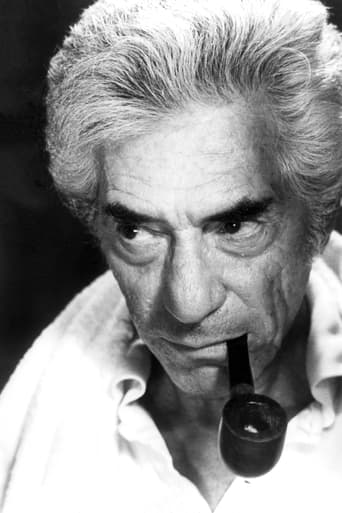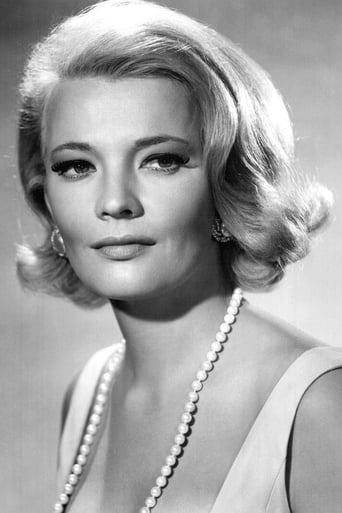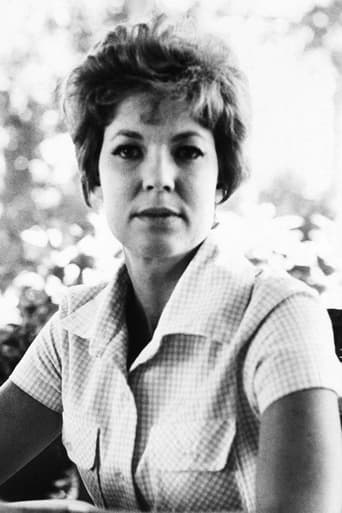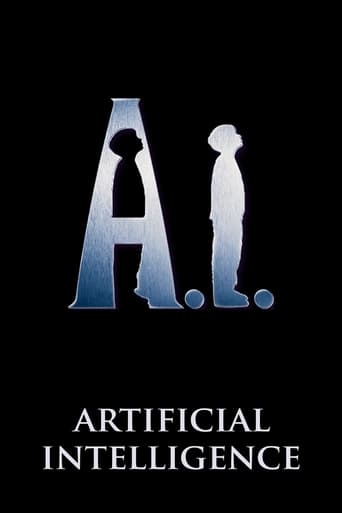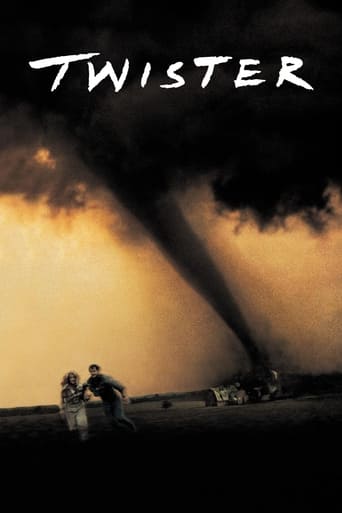
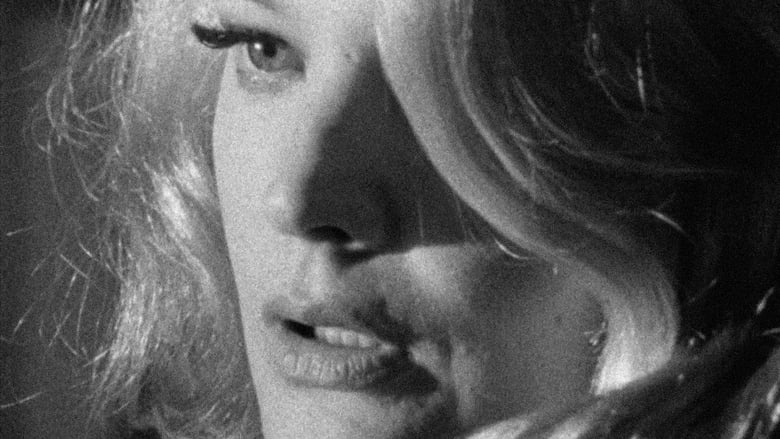
Faces (1968)
Middle-aged suburban husband Richard abruptly tells his wife, Maria, that he wants a divorce. As Richard takes up with a younger woman, Maria enjoys a night on the town with her friends and meets a younger man. As the couple and those around them confront a seemingly futile search for what they've lost -- love, excitement, passion -- this classic American independent film explores themes of aging and alienation.
Watch Trailer
Cast
Similar titles


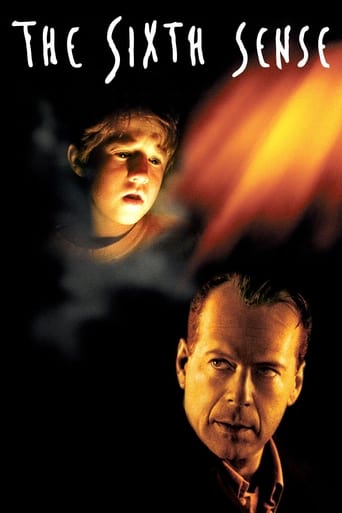
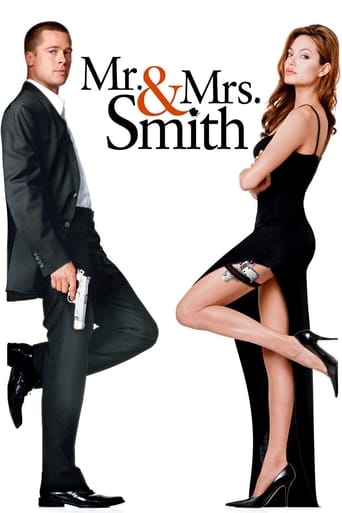

Reviews
Overrated and overhyped
Better Late Then Never
It’s fine. It's literally the definition of a fine movie. You’ve seen it before, you know every beat and outcome before the characters even do. Only question is how much escapism you’re looking for.
A terrific literary drama and character piece that shows how the process of creating art can be seen differently by those doing it and those looking at it from the outside.
Sometimes, when I'm not careful, I have a tendency to cast blanket judgements on people, particularly on the middle-class. I do feel that subjecting yourself and your children to a middle-class lifestyle is akin to willingly giving up your ability to communicate directly. The moment one of the more searing emotions nudges its way through to the surface, you're immediately encouraged to suck it back down again. The cumulative effect of this process, which your average middle-class household may encounter three or four times a day, is a deadening of your nerve endings. You find yourself unable to communicate in any other way than in fluty chattering. I try to avoid these types of characters whenever I can, and like to think I've stepped outside of that world as much as possible, but I do know that it's the people outside of your realm of experience who are the most deserving of your empathy. It's lucky for me that there are individuals like John Cassavetes out there to remind me that these people are vulnerable victims as much worthy of my compassion as anyone else.Faces took over four years to make, and a large chunk of that time was spent in the editing suite (and by suite, I mean various offices, spare rooms and an array of international hotel rooms). It was whittled down from over fifty hours of footage. Cassavetes isn't really the type to set out to tell acutely defined stories with Aesop-like moral messages. While the notion that his whole oeuvre was improvised was indeed largely a myth (and one started by his early hype-merchant quotes during press tours, as well as glibly referring to Shadows as "an improvisation" at the end of the movie), he always let his actors draw their own conclusions about their characters. That said, I do think Cassavetes told a surprisingly clear story in his final cut- that of adults continually proving themselves to be wayward, neurotic, broken children, who, in spite of wending down dozens of blind alleys throughout their lives, still ultimately just want to be liked and to play. Perhaps it's a bit too pat to refer to adults as broken children;maybe we're actually our own alien species fuelled more on pride than juice cartons.More than any other of his films, I do think Faces has its own unique atmosphere like nothing else- either of his own works or anyone else's. It's probably a result of having so many man-hours put into the thing. The shooting took a few months, but having to contend with things like re-synching the sound after it botched up (not to mention having to edit out all the examples of Cassavetes unwittingly mimicking all the characters behind the camera, loudly), the stops-and-starts as Cassavetes acted in things like The Dirty Dozen, Italian crime movies and Corman biker b-pics to raise funds, having children (two of his principle cast, his wife Gena Rowlands and Lynn Carlin, were pregnant during shooting), hustling distribution deals, and thousands of other problems- all of these things resulted in a unique synthesis of spontaneity and painstaking fastidiousness. You'd think in a whirlwind period like the mid-to- late '60s, where new cultural revolutions were taking place every week, a four year delay between shooting and release would be noticeable on screen, but the actors' emotions remain undated even now. John Cassavetes, churlish nightmare as he could be to work with, loved people unashamedly, and it's hard to go back to regular Hollywood flicks, which are awash with editorialised opinions on their own characters, after watching a Cassavetes film. Though I'd probably have precious little opportunity of crossing paths with most of these sorts of characters in real life, the cast and crew's unwillingness to create encomiums or indictments on any of the broken-winged birds peopling Faces really pays off. I can feel for every Face on screen. I can feel it when they try to hurt the person they're talking to rather than admit their fondness, just in case it opens doors they've spent years trying to keep shut. I can feel just wanting to share a desperate kiss with someone to prove that you're as young as you're badly acting. I can feel all the wordless conversations which scream below the surface dialogue.Some people see Faces as a bit of a hopeless movie- "depressing"- but Cassavetes didn't see it that way, and I definitely don't. It may have taken a near-overdose, but to me it feels like Lynn Carlin's character did something near-impossible at the end of the picture... Getting back to the middle-class thing, I feel with a lot of the middle-class there are always two conversations taking place in any given exchange: the surface politesse, and something rawer and more yearning which very rarely is given voice. When you listen to Carlin's inflection when she replies to Cassel, after he frantically brought her back to life, there's a tone you hear nowhere else in the film. "Try me". Her voice sounds so present, so full of alacrity and humanity... It sounds as if she's finally broken free of a smothering chrysalis and she's THERE at last. Those two voices are one at last.It could be she'll slip back into her old habits again. Living in the same house with the same husband, the same ablutions and rituals (such as you see her performing in one scene when she goes through the house checking the appliances and lights are turned off), perhaps they'll drag her back into the doldrums again... For some reason, though, I don't think so. She's experienced incredible pain, and it's still infinitely better than being a "mechanical man". Cassavetes said he always loathed finger-pointing pictures which make the world seem like the flop-house of a race of irredeemable robbers and scoundrels. He preferred films which, while remaining honest, left their audience with a feeling of optimism. Every time I watch Faces, I'm optimistic.
An older man (John Marley as Richard Forst) leaves his wife (Lynn Carlin as Maria Forst) and this film tracks the fallout as he takes up with a younger escort (Gena Rowlands as Jeannie Rapp) and she takes up with a more fun-loving younger man from Detroit (Seymour Cassel as Chet). The caustic moments in this film could peel the paint off walls. The false and forced bonhomie, the hollow laughter and the empty words will rip you to pieces.The cinematography overseen by Al Ruban astonishing. The quick cuts from speakers to their interpolators keep one just a little on edge but don't detract from the tension of the movie.The writing and acting are bracing - the early scene in which Richard shows affection and laughs almost manically as he and his wife share a nice domestic scene. Just a short time later though, we see the change in mood as they lay in bed and Richard, turning away from his wife, looks cold and distant, clearly about something not as pleasant. The rapidly shifting vibe between Richard and Jeannie as he flatters her and then seems cold and cruel toward her and she tries unsuccessfully to retain some emotional distance from him. Gena Rowlands is amazing in her scenes with John Marley. She conveys hurt, playfulness, need, and love in short order.Perhaps my favorite scene is when Richard goes to Jeannie only to find her entertaining two businessmen - Jim and Joe. Both men try to remain cool, not appearing too angry while also attempting to stake their claim for Jeannie's affections. Two powerful men trying to look cool while posturing makes for great entertainment. Cassavetes script conveys the difficulty of their task.The alienation and emotional isolation of Maria's nightcap with her friends and Chet (Seymour Cassel) is also bracing. They try to cheer her up but it seems no one is really having a good time. The mood shifts wildly and no one ends up happy. Astonishing writing and acting from Dorothy Gulliver as Florence and Darlene Conley as Billie Mae, as well as an amazing depiction of heartbreak from Lynn Carlin.The final scene is also amazing for the reserved way it holds in reserve vast amounts of emotional energy. The acting, writing, directing and camera-work here speak to professionals really working at a high level. The rawness of the acting, the skittish camera-work from Ruban, and Cassavetes control over, and vision of, it all, make this a film of the highest caliber.
This is obviously not your average, everyday movie. It's some thing you could only watch at an art-house theater, so clearly this movie is not for just everyone.John Cassavetes was a sort of guerrilla film-maker. His movies never felt like it had any storyboards or were rehearsed in any way. There was never a pre-setup plan, concerning any of its camera-work or positions and the actors all also seemed to be ad-libbing at points. They were just simply shooting away, which gives the movie a very raw and authentic feeling. I think this is the foremost reason why people really like his movies. I myself can appreciate it but that doesn't mean I'm that fond or impressed with it as well.No, it's not really an easy or pleasant movie to watch. It's because the story is not really following a clear main plot line and things just seem to happen very randomly. I just simply prefer a more clear and straightforward story, since it also seemed to me that because of Cassavetes' approach, some of the sequences seemed to go on for ever and often weren't making that much sense for the story either.I can still understand the story and what Cassavetes was trying to do and tell with it. It's basically a look into married life and not about any of its peachy or happy aspects. But however, like I mentioned before, I would had been more taken by it and probably would had find the story to be a more interesting one, if it had a more straightforward story and approach to it.But yet I never hated watching this movie either. I can still definitely appreciate the way it got made and also all of the actors were a joy to watch. The movie really has some fine actors in it and I was especially fond of John Marley's performance. It were however Lynn Carlin and Seymour Cassel who received an Oscar nomination for their roles in this move.Actually it seems quite amazing to me how this movie managed to score 3 Oscar nominations, since it's such an artistic movie, that normally would hardly get ever noticed or recognized by any of the big award shows. It perhaps says something about the popularity or status of director and writer John Cassavetes at the time or how people looked at movies.For most people this movie will probably be too tough to bite through, or it simply won't be interesting enough to sit through but there is still a large crowd for these sort of movies out there. So if it sounds like it's your thing, chances are you'll probably end up loving it.7/10 http://bobafett1138.blogspot.com/
All we have here is Cassavetes' name to draw us into this hopeless waste of someone's production money. I've never understood the Cassavetes directorial style (expression of his intense anger), nor the masochism of his film audiences. This is a typical Cassavetes product - characters are in-your-face loud, crass, and shallow (again: reflecting the director's personality). Overly theatrical "performances", abrupt, artificial mood changes, and hysterical, mindless, irritating laughter. Misogynistic, forced humor. Good camera work but poor sound and lighting. One would be seriously deluded to consider this art. Throughout the film you will feel uncomfortable, and ask yourself, "Why am I watching this?"

